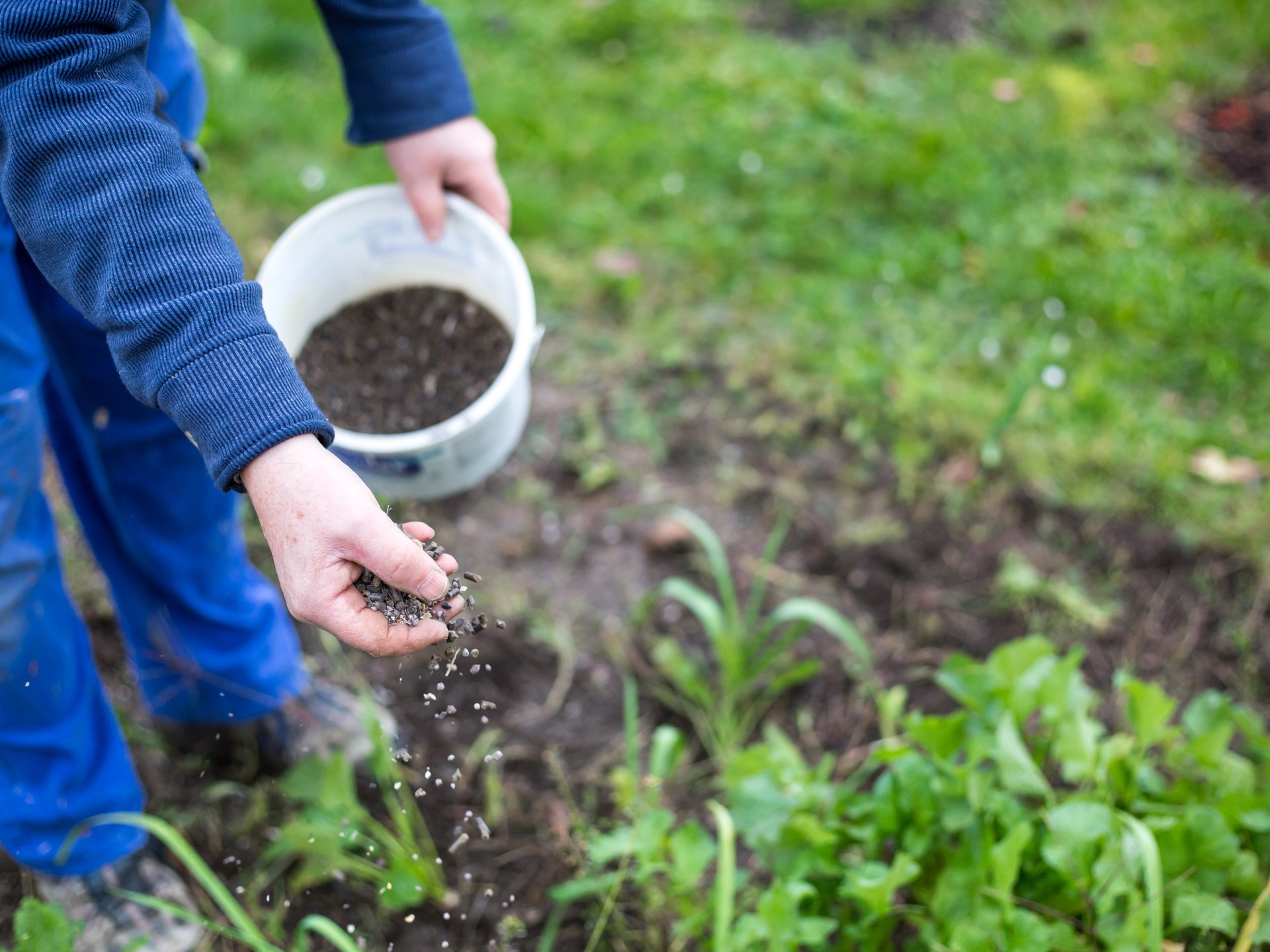Fertilizing a garden with granular biofertilizers (Shutterstock)
A new study warns of potassium deficiency in agricultural soil, which represents a major threat to global food security if left unaddressed.
According to the study published on February 19 in the journal Nature Food, the amount of potassium removed from agricultural soil is greater than what is added in many regions of the world.
The study indicates the importance of potassium in maintaining crop productivity that maintains food security for the world, especially since its depletion represents a major threat to the food security of millions of people around the world.
An essential nutrient
Potassium is one of the most important nutrients vital for plant growth, as it is considered necessary in all processes necessary to maintain plant growth and reproduction.
In the case of a potassium deficiency, plants are less resistant to drought, excess water, and high and low temperatures, and their resistance to pests, diseases, and nematode attacks is also weakened, according to study co-author Peter Alexander, a lecturer in the Department of Agricultural Sciences at the Faculty of Earth Sciences at the University of Edinburgh in Britain.
Alexander explains in an interview with Al Jazeera Net that potassium improves the general health of growing plants and helps them fight diseases. It also affects quality factors such as the size and shape of the plant, the color and strength of seeds or grains, and improves the quality of cotton fibers.
Farmers often spread potassium-rich fertilizers on their fields to replenish depleted nutrients, but supply problems can prevent their use, and there are lingering questions about their environmental impact.
In the study, researchers believe that about 20% of agricultural soils worldwide face a severe potassium deficiency, with the possibility that certain regions may face a more serious deficiency, including 44% of agricultural soils in Southeast Asia, 39% in Latin America, and 30% of agricultural soils in Southeast Asia. % in Southeast Asia and Sub-Saharan Africa and 20% in East Asia, which is largely due to the study;
to more intensive agricultural practices.
Russia and Belarus together export about 42% of global potash supplies (Shutterstock)
Potash monopoly
Farmers often rely on potash as a fertilizer to replenish potassium in their fields, but the price of the mineral can be very volatile.
Only 12 countries dominate the international potassium fertilizer market, worth about US$15 billion, with Canada, Russia, Belarus and China producing 80% of the world's total raw potash.
The study indicates that the price of potash rose in April 2022 by 500% over the previous year due to high demand for fertilizers, rising fuel prices, recovery from the pandemic, and a group of government measures around the world, as well as the Russian-Ukrainian war.
Russia and Belarus together export about 42% of global potash supplies, but after the Russian-Ukrainian war, the United Kingdom, the United States, Canada and the European Union imposed import sanctions on the two countries, disrupting global supplies and exacerbating rising prices.
The co-author of the study stresses the importance of preparing a global assessment of current potassium stocks and flows to identify countries and regions most at risk, and to help farmers maintain adequate levels of potassium in the soil by conducting further research on the effects of potassium deficiency in various crops and soils.
Source: websites

